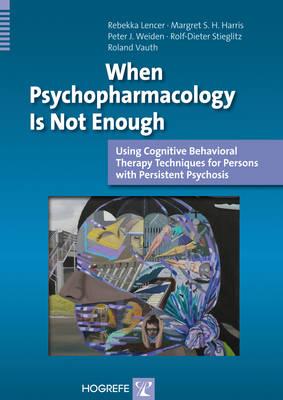When Psychopharmacology Is Not Enough: Using Cognitive Behavioral Therapy Techniques for Persons with Persistent Psychosis
$35.82
Description
Using CBT and other techniques to improve outcome and compliance with drug treatments for schizophrenia and other psychoses — essential reading for psychiatrists and other mental health practitioners An exclusive focus on biological models of schizophrenia and on antipsychotic drugs for treatment of schizophrenia or other psychoses is increasingly being recognized as a major barrier to effective treatment. Written by an expert team of psychiatrists and psychologists with wide experience of combining drug and psychological treatments, this book provides a practically oriented and clear overview of how to use CBT in mental health services that have traditionally emphasized medication management. At the same time as respecting the important role of drug treatment, it shows clinicians how to achieve better outcomes with schizophrenic and psychotic patients using CBT techniques. The book describes key adaptations of standard CBT approaches to optimize efficacy in schizophrenia, the core techniques that have been found to be most effective, how to integrate the CBT approach into more traditional medication management — and also how this approach can be used with individuals who do not accept a diagnosis of mental illness or reject medication. Includes practical pull-out cards: treatment planning checklist, guided exploratory questions, logical reasoning strategy, hearing voices strategy.
Author: Lencer, Rebekka, Author: Harris, Margret S H, Author: Weiden, Peter J, Author: Stieglitz, Rolf-Dieter, Author: Vauth, Roland, Author: Lencer, R
Topic: Medical / Nursing
Media: Book
ISBN: 088937368X
Language: English
Pages: 125
Additional information
| Weight | 0.85 lbs |
|---|---|
| Dimensions | 9.9 × 6.9 × 0.3 in |















Reviews
There are no reviews yet.